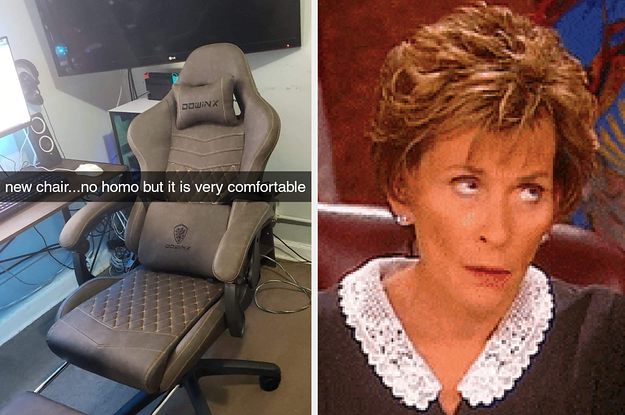Category: Worldwide
Category Added in a WPeMatico Campaign

The NBA will not be the first professional sports league to use the friendly confines of Disney World to restart its season amid the COVID-19 pandemic. That honor will go to Major League Soccer, which will hold its MLS Is Back tournament there from July 8 and end on August 11, at which point a champion will be crowned.
The tournament’s groups have already been laid out, and we already know that things will transition from group play to knockout play once that gets all sorted out. One of the last things that needed to be all sorted out before everyone gets down to Disney for the tournament is information on kick times, dates for matches, and television info, and on Wednesday afternoon, the league announced how things will play out.
Things will kick off on July 8 with a pair of Group A matchups: Orlando will take on Miami at 8 p.m. EST, with Nashville and Chicago going head-to-head at 10:30. From there, every single day up to July 23 will include at least a pair of matches, with the knockout stage beginning on July 25. Here’s how group play will play out:
Here. We. Go.
@OrlandoCitySC & @InterMiamiCF kick things off in 𝐆𝐫𝐨𝐮𝐩 𝐀.#MLSisBack Tournament Group Stage pres. by @Heineken_US. pic.twitter.com/JQaaORo02H
— Major League Soccer (@MLS) June 24, 2020
You ready, Group B?
#MLSisBack Tournament Group Stage pres. by @Heineken_US. pic.twitter.com/MXsmn9Hh9D
— Major League Soccer (@MLS) June 24, 2020
Group C is going to be fun!
#MLSisBack Tournament Group Stage pres. by @Heineken_US. pic.twitter.com/k3l5BP1gR0
— Major League Soccer (@MLS) June 24, 2020
Mark your calendars, Group D.
#MLSisBack Tournament Group Stage pres. by @Heineken_US. pic.twitter.com/6gmdxeifMW
— Major League Soccer (@MLS) June 24, 2020
The matchups in Group E though.
#MLSisBack Tournament Group Stage pres. by @Heineken_US. pic.twitter.com/HmBpa9gRWo
— Major League Soccer (@MLS) June 24, 2020
El Tráfico in Group F? Yes, please.
#MLSisBack Tournament Group Stage pres. by @Heineken_US. pic.twitter.com/cKtFNTyEl2
— Major League Soccer (@MLS) June 24, 2020
Once group play is all wrapped up, the round of 16 will begin on July 25 and run through the 28th. The quarterfinals will occur on July 30 and August 1, the semis are on August 5 and 6, and the final will take place on August 11. As for which teams will make the knockout round, Sam Stejskal of The Athletic explained that finishing in third place for the teams in groups B-F isn’t necessarily a death knell.
Full MLS Is Back tournament schedule, from a source.
Format change: Top-three teams from Group A will advance to knockouts, where they’ll be joined by top-two and the three best third-place finishers from other five groups. https://t.co/BjokGGyQmi
— Sam Stejskal (@samstejskal) June 24, 2020
According to the league, ESPN, ESPN 2, Fox, FS1, and TuDN will air every match of the tournament during its run.

After a week of Nike completely dominating the top five, we’re happy to see some variety on SNX DLX this week, with great releases from… Nike (duh), Yeezy Brand, ASICS, and the King of Corduroy himself, Mr. Sean Wotherspoon. On the apparel end, skaters will be happy to find some fresh new threads from Supreme and Palace, and if you’re looking for another way to donate some money to the NAACP and support the protestors calling for an end to police violence, we’ve got a pretty sick charitable 8-panel cap from KILLSPENCER.
Without further ado, let’s dive into all the best sneaker and apparel releases for the week.
Air Jordan 4 Animal Instincts 2.0

Tinker Hatfield, who contributed more iconic sneaker designs than any other sneaker designer ever, made history when he introduced the world to “elephant-print” on the Air Jordan III. It’s still one of the best animal-inspired prints we’ve ever seen, and to take it one step further, Nike decided to add some snake and gator skin into the mix for a dangerous reptile-heavy aesthetic. Of course, it’s not actually snake, gator, or elephant skin, and that only makes the sneaker cooler.
The Air Jordan 3 Animal Instincts 2.0 is set to drop on June 25th for a retail price of $250. Pick up a pair through the Nike SNKRS app.

Nike LeBron 17 Graffiti

The LeBron 17 Graffiti borrows the IV’s most coveted LeBron IV colorway and slaps it across the 17s performance-based construction. Featuring integrated Foamposite technology, the LeBron 17 has everything a good court shoe should have: support, flexibility, comfort, and strong design.
The LeBron 17 Graffiti is out now for a retail price of $225. Pick up a pair through the Nike SNKRS app.

Adidas YEEZY QUANTUM Barium

It’s been a minute since we’ve included a YEEZY of note on SNX DLX, but that ends this week with the release of the YEEZY QUANTUM in a sleek Barium iteration. We’ll have to see the Barium in person to see if it shares the color-shifting properties of the earth metal its named after, but shimmer or not, the Barium is one of the craziest basketball shoes we’ve ever seen. Is it even really a basketball shoe? Well, it was good enough for NBA All-Star Weekend, so that settles it!
The YEEZY QUANTUM Barium is set to drop on June 25th for a retail price of $250. Pick up a pair exclusively through YEEZY Supply.
Air Jordan 11 Low Concord Bred

A mashup of two massively popular Jordan colorways on a low-profile Jordan 11, the Concord Bred utilizes the Jordan Concord’s elegant white and black leather upper and sits it atop the Jordan Bred’s iconic red and white midsole. It’s not nearly as great as the sum of its parts, but it’s still a cool mashup that hardcore Jordan heads will get a kick out of… if they don’t find the whole thing slightly blasphemous.
The Air Jordan 11 Low Concord Bred is set to drop on June 27th for a retail price of $185. Pick up a pair through the Nike SNKRS app.

Atmos x Sean Wotherspoon x ASICS Capsule Collection

By far the most colorful release of the week, this ASICS GEL-LYTE III iteration is a collaboration between Japanese retailer atmos and Courdoroy-obsessed sneaker designer Sean Wotherspoon. Dropping in a mismatched pair, Wotherspoon’s GEL-LYTE IIIs are inspired by 1984 Los Angeles and 2020 Tokyo. In what way, exactly? We can’t say, but the set includes sneakerhead-loving attention to detail, liked mixed fabrics, embroidery, and interchangeable Tiger stripes and patches.
In addition to the sneakers, atmos and Sean Wotherspoon have also put together an apparel collection of tie-dye shirts and corduroy bags that capture the collaboration’s playful spirit.
The atmos x Sean Wotherspoon ASICS GEL-LYTE III is set to drop on June 27th for a retail price of $264 along with the full apparel collection. Shop the capsule exclusively at atmos.


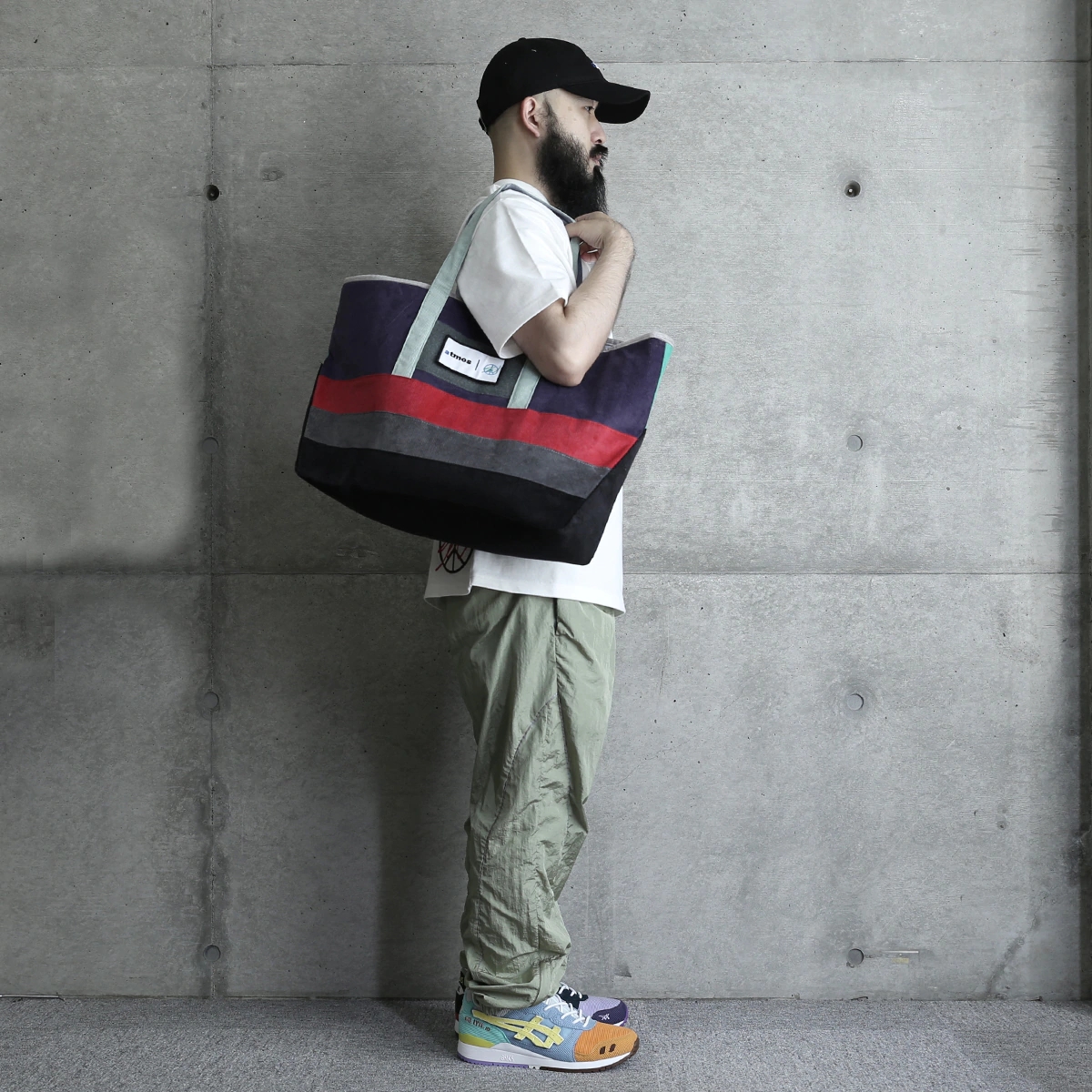
Supreme Leigh Bowery Collection
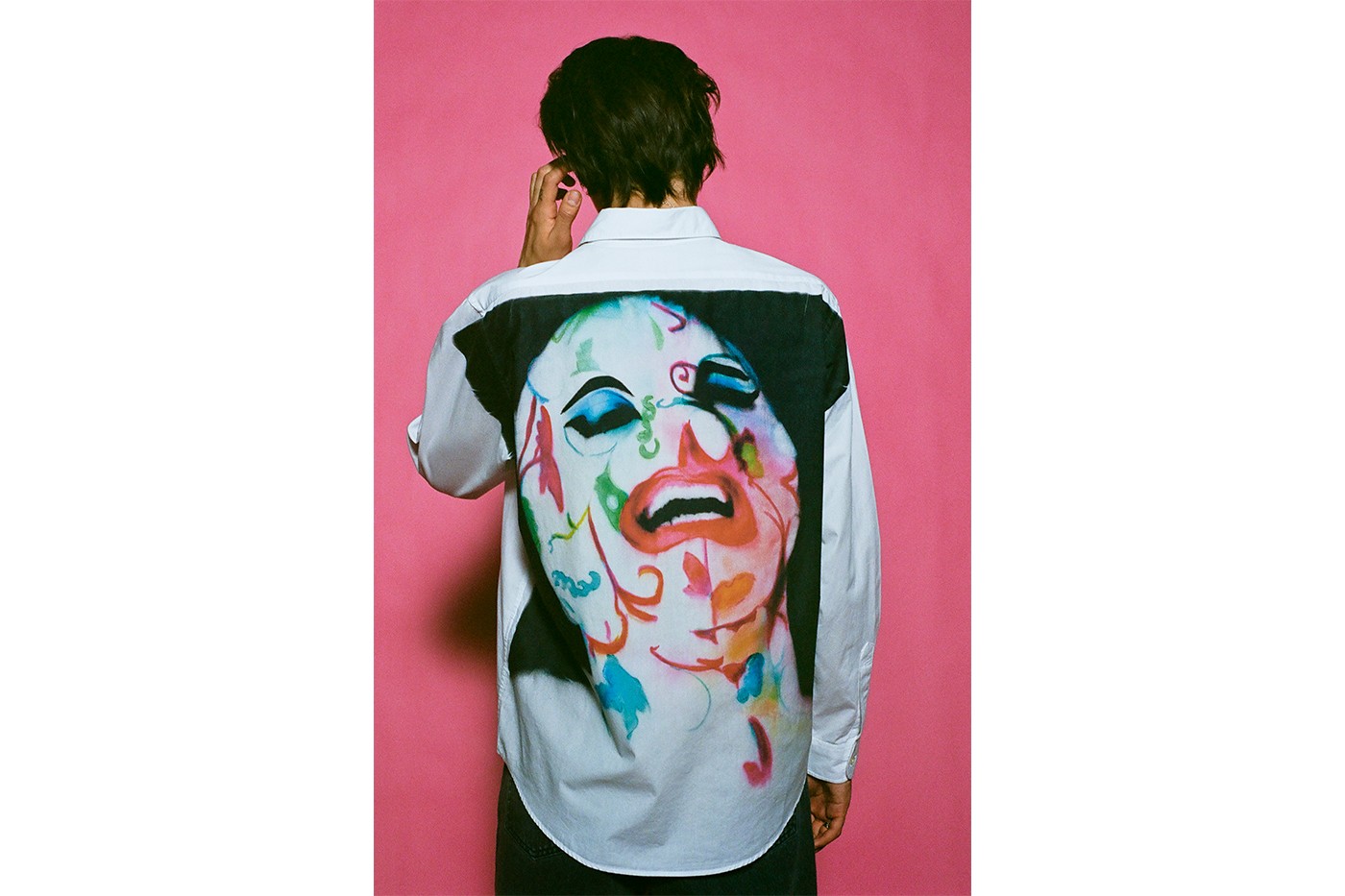
One day after we published our list of the greatest Supreme shirts of all time, and we already need to make an addition thanks to this Supreme capsule collection that celebrates performance artist and 80’s London club kid, Leigh Bowery. The collection consists of a long sleeve t-shirt, hoodies, and a short sleeve t-shirt with photos of Bowery, who used his body as a canvas, taken by several photographers including Jim Krewson, Fergus Greer, and Michael Costiff. A portion of the proceeds sold will go to benefit the New York City-based HIV/AIDS organization, Visual Aids.
The Supreme Leigh Bowery collection is set to drop on June 25th and will be shoppable from Supreme’s online store. An in-store and online release will follow for Japan on the 27th.
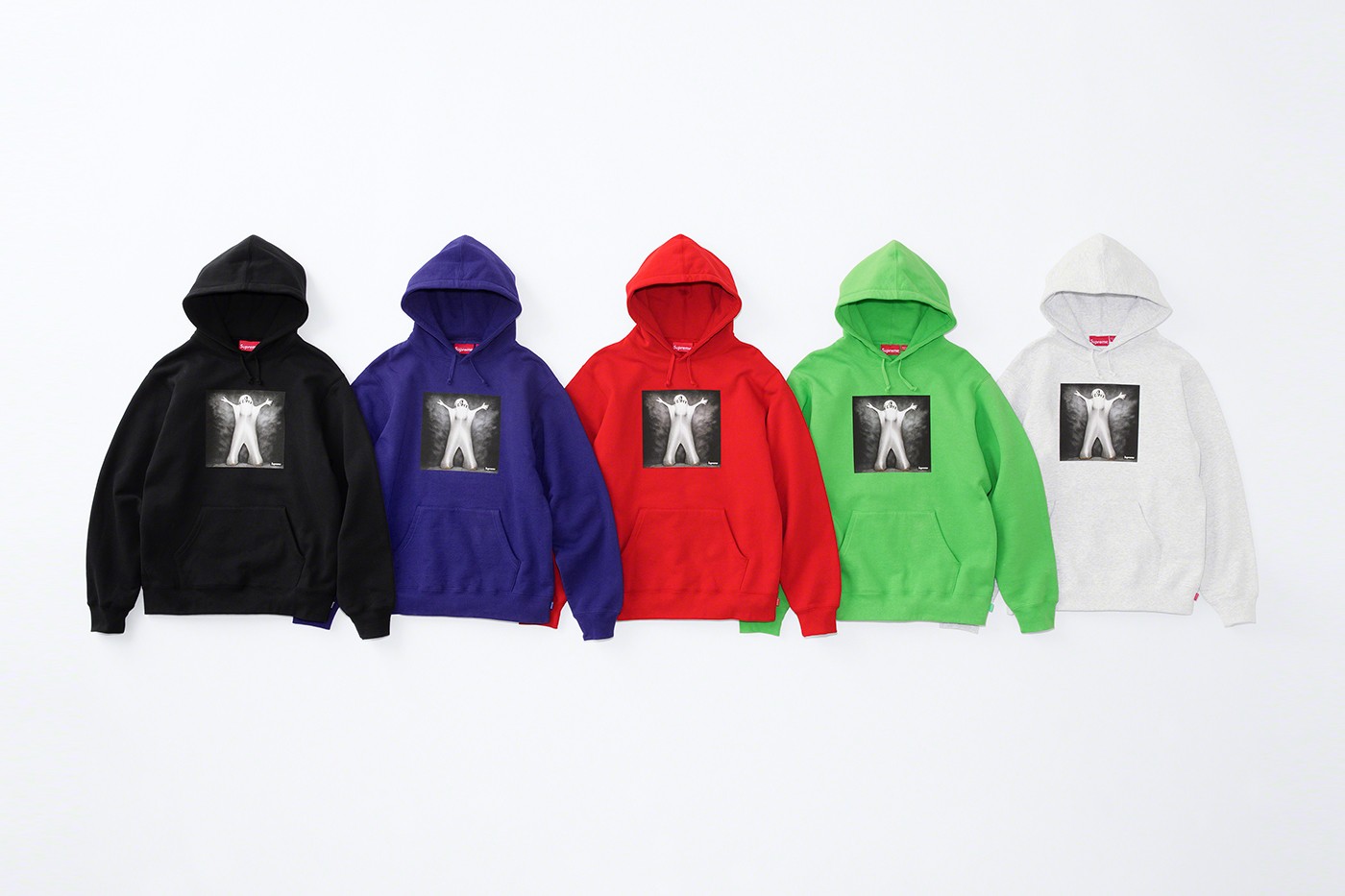
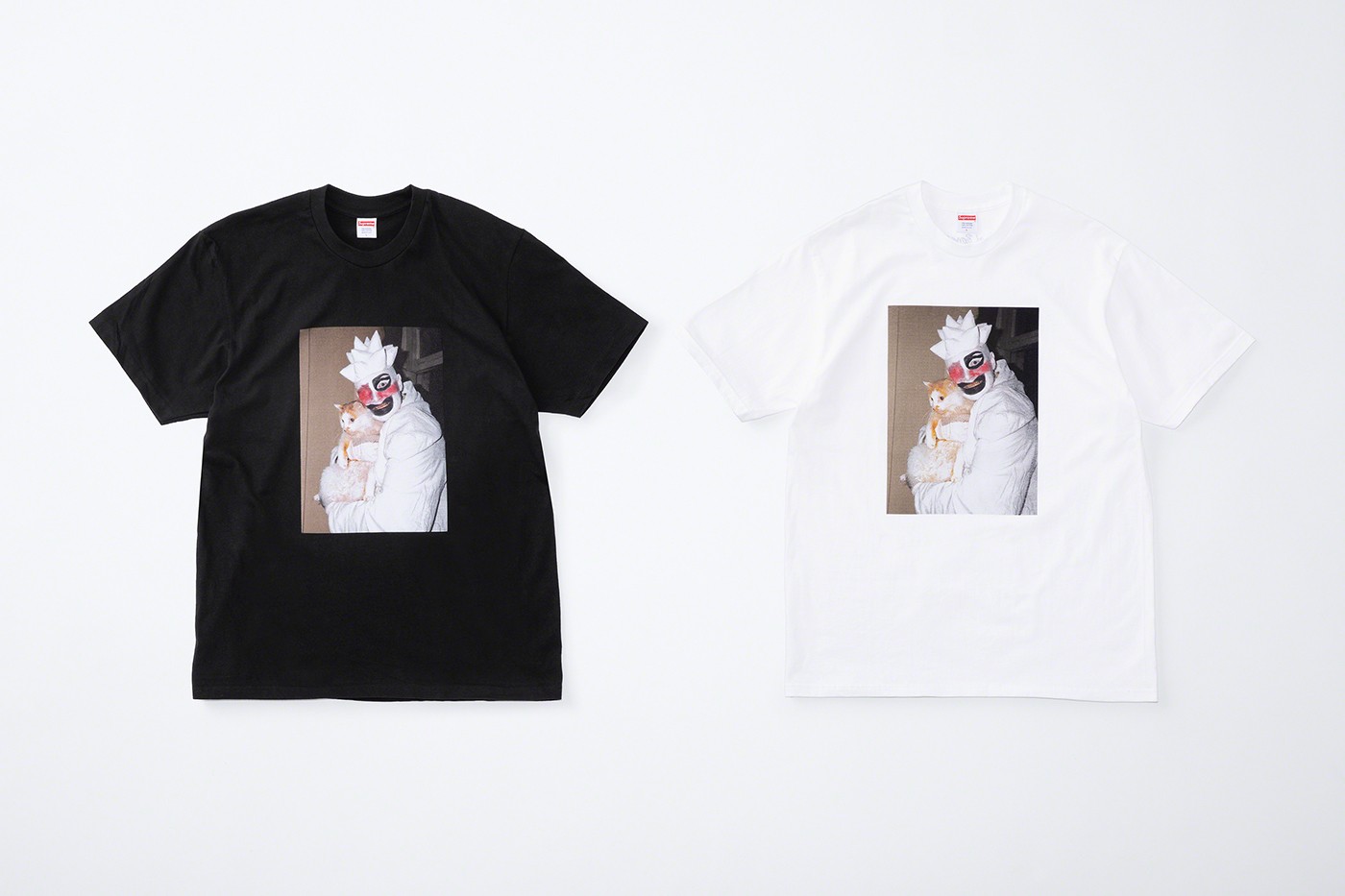
KILLSPENCER Black Lives Matter 8-Panel Caps

Show your support for the Black Lives Matter movement with one of these 8-panel caps designed by KILLSPENCER. Coming in either wool or leather-bill iterations, this cap from California-based leather masters KILLSPENCER features a reflective fist logo and the KILLSPENCER’s leather patch branding on its right side. All proceeds from the sale of the hats will go directly to the NAACP Legal Defense and Educational Fund, which is the best reason to buy a hat we’ve ever come across.
The KILLSPENCER Black Lives Matter 8 Panel caps are on sale now at the KILLSPENCER webstore for a retail price of $65 for the wool, and $85 for the leather.
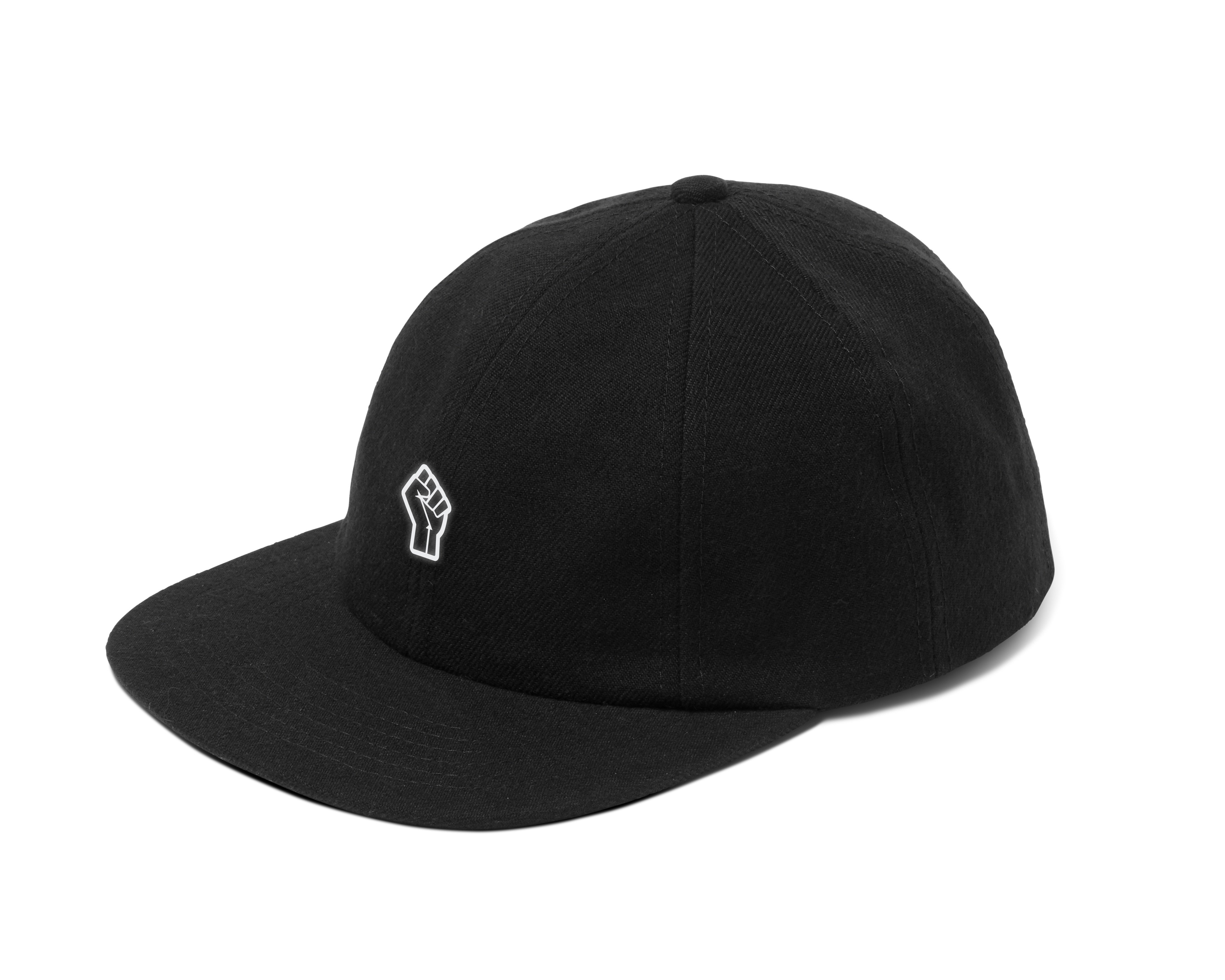
Palace Jean Charles de Castelbajac SS20 Capsule
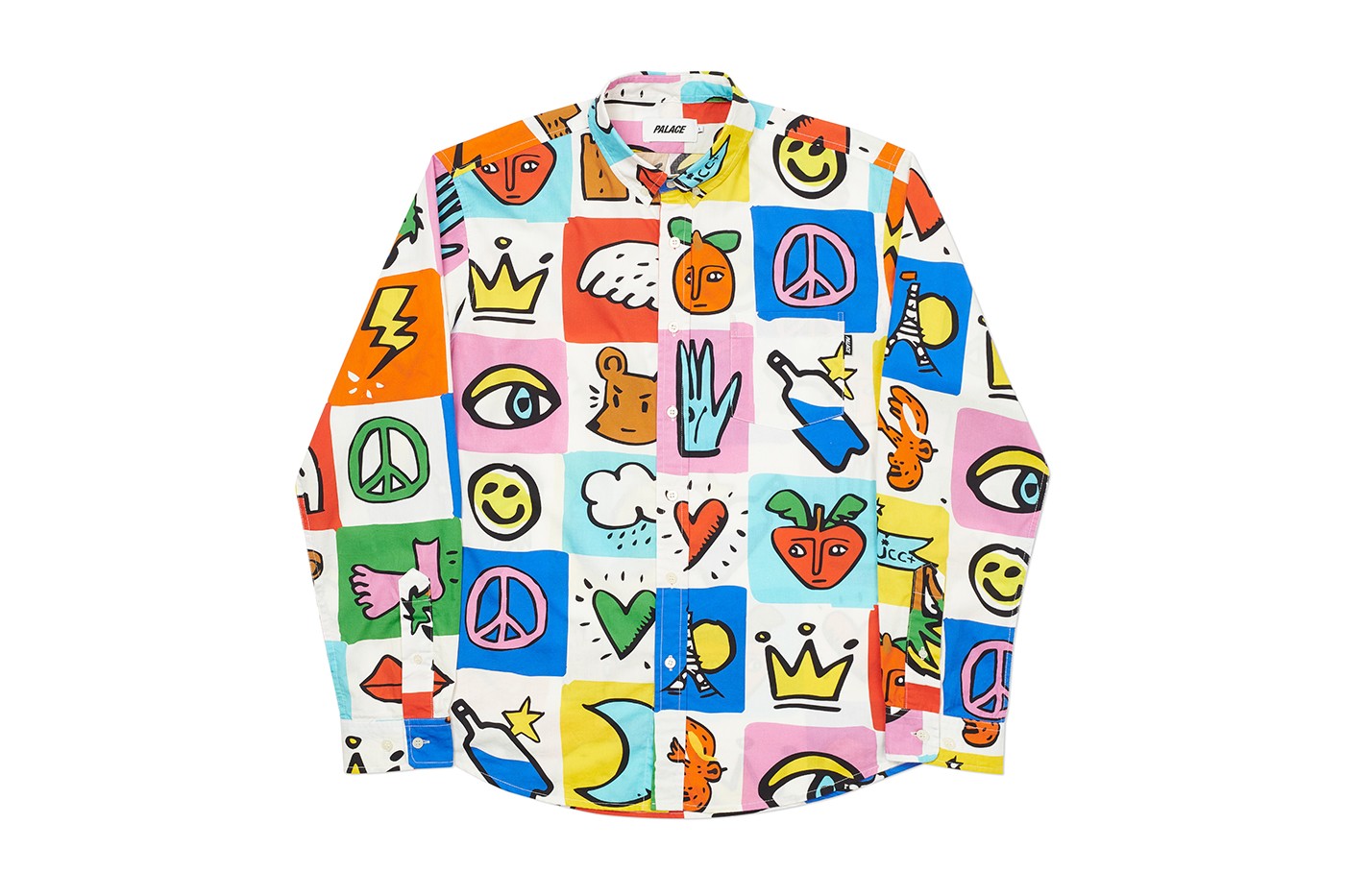
If you thought Palace’s summer output couldn’t get any better, you were wrong, because this week brings a capsule collection from Palace designed by Moroccan and French designer Jean Charles de Castelbajac. The playful primary-color-heavy collection features classic Palace designs, like the Tri-Ferg logo, and infuses a bit of JCC’s childlike aesthetic. For something on the more out-there and loud end of the spectrum, grab the illustration-heavy checkered crewneck or button-up shirts.
Rounding out the collection is a colorful bucket hat and dual-branded Palace and Jean Charles de Castelbajac branded embroidered caps.
The Palace JCC SS20 capsule collection is set to drop on June 26th. Shop the full collection at the Palace webstore.
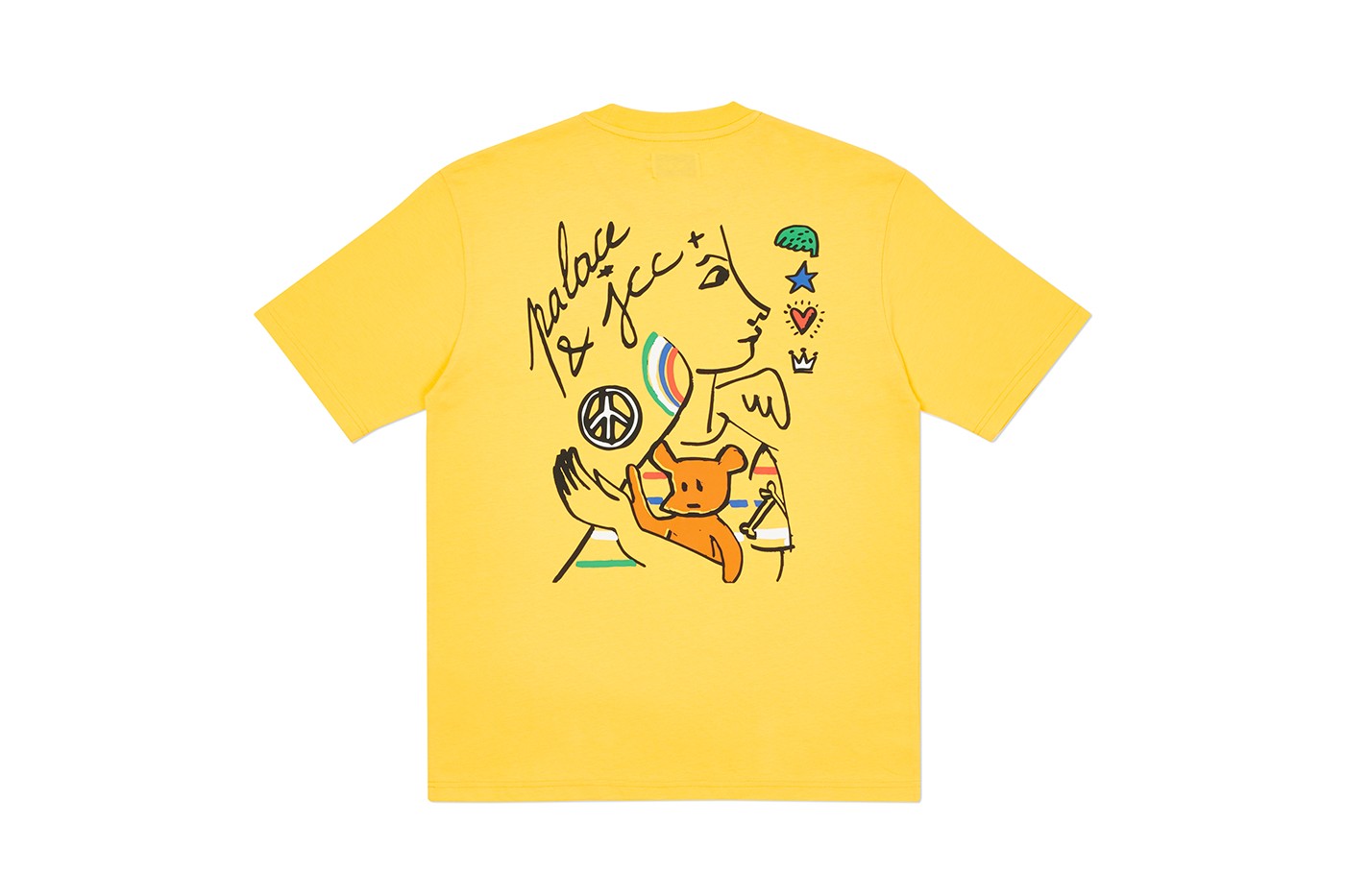
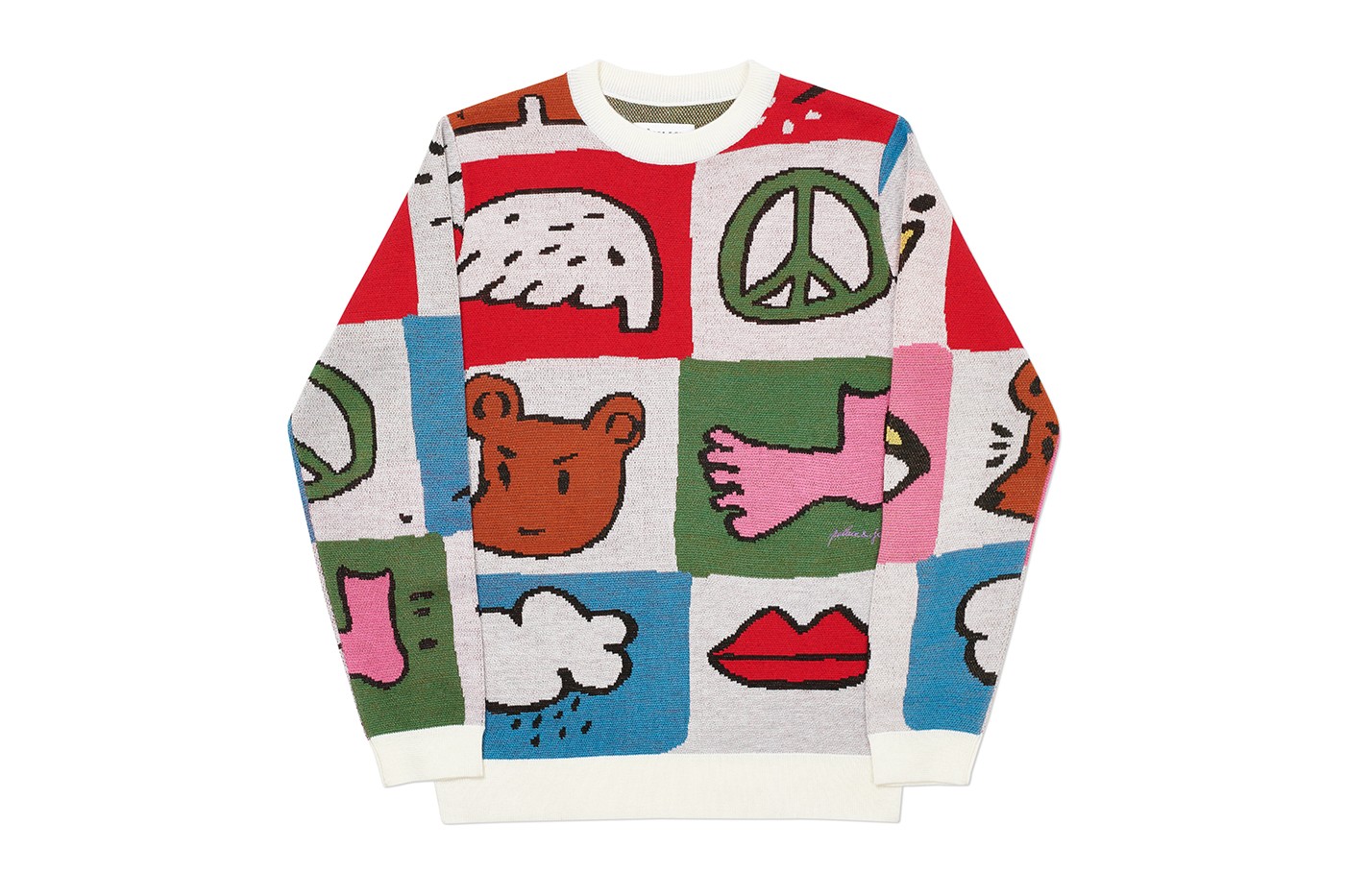


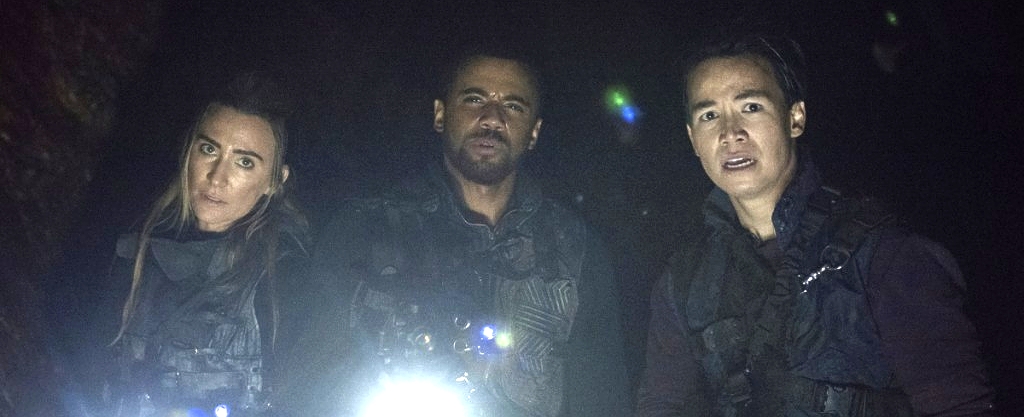
If nothing below suits your sensibilities, check out our guide to What You Should Watch On Streaming Right Now.
The 100 (CW, 8:00 p.m.) — A surprise reunion takes place on Bardo as Diyoza suffers under the hand of the Shepherd while back in Sanctum, Indra struggles to keep the peace as Russell schemes and the convicts start stealing weapons. Oh, and Clarke and company are caught in a sticky situation on a hostile planet.
Bulletproof (CW, 9:00 p.m.) — In Amsterdam, Bishop and Pike discover the dark operations of the Markides family as they search for a missing girl.
Marvel’s Agents of S.H.I.E.L.D. (ABC, 10:00 p.m.) — A bumpy ride through the disco decade brings the team, and Daniel Sousa, back to S.H.I.E.L.D. headquarters where a familiar face waits to help them take down the Chronicoms. Unfortunately, their plan might actually work this time and the Zephyr senses it which is why they’re hurtled into the future to a date pivotal to the team’s continuation and Director Mack’s career.
Nobody Knows I’m Here (Netflix) — Lost star Jorge Garcia gives a riveting turn in this Spanish drama about a musically gifted recluse hiding out on a Chilean sheep farm whose talent is finally discovered, thrusting his life into chaos.
Crazy Delicious (Netflix) — Calling all cooking show competition stans. Netflix is teaming up with BBC to give us another British import, but don’t expect friendly chats over custards and tarts this time around. Home cooks are charged with creating delicious dishes in a fantasy-themed environment that will impress a panel of merciless judges. It’ll be your new binge-watching obsession.
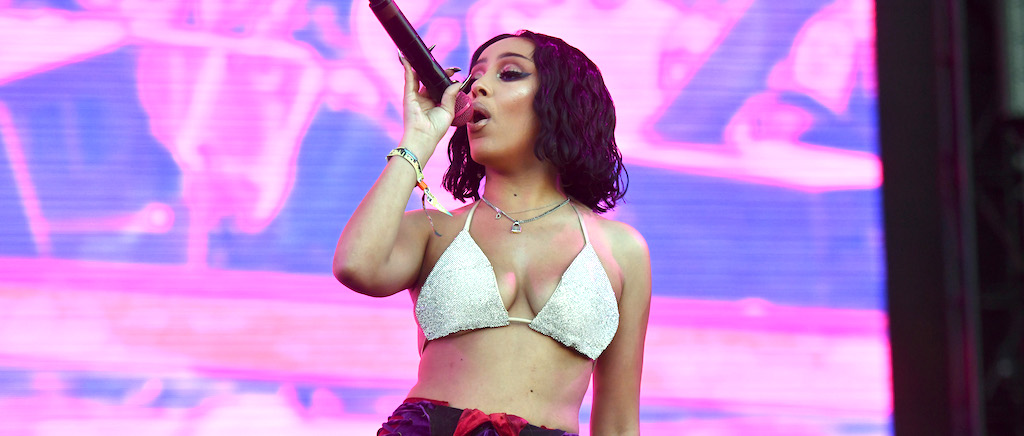
It’s been almost a month since Doja Cat issued an apology after controversial videos and songs from her past resurfaced. But the singer has yet to put in her last words about the situation. On Tuesday, the singer took to social media to shame those who continue to accuse her chat room friends of racist remarks.
Back in May, clips surfaced of Doja Cat video chatting with a group of mostly white men, who many labeled as white supremacists and members of the Incel (involuntary celibate) subculture. While Doja Cat apologized for her past insensitive remarks and any harm she caused fans, the singer continues to dispel rumors that her chat room friends are racist or sexist.
The singer jumped on Instagram Live to ardently defend her internet friends and call out those who are still attempting to cancel her:
“I just realized how f*cking stupid that narrative is. I just realized that. The things, the verbal harassment, the physical harassment, that I could go through being in a crowd of white supremacists, who you think I’m so good friends with. It’s f*cking ridiculous. My friends aren’t f*cking racist on chatrooms. My friends on Tiny Chat are not f*cking supremacists. They love me, I love them. They’re loving, and that’s it. And you won’t find anything on them because you’re f*cking stupid. Your actions are stupid. You may not be stupid, you may be smart. But your actions are not telling. It just is what it is. You guys are f*cking disappointing. This isn’t how you combat problems. And if you think it is, then you need to grow the f*ck up, and I’m sorry. I’m sorry that you suck right now.”
Doja Cat responds to people calling her a white supremacist on Instagram Live:
“My friends aren’t racist on chat rooms. My friends on Tinychat aren’t white supremacists…and you won’t find anything on them because you’re stupid!” pic.twitter.com/pvHWp5kzik
— Pop Crave (@PopCrave) June 24, 2020
Watch a clip of Doja Cat’s Instagram Live above.
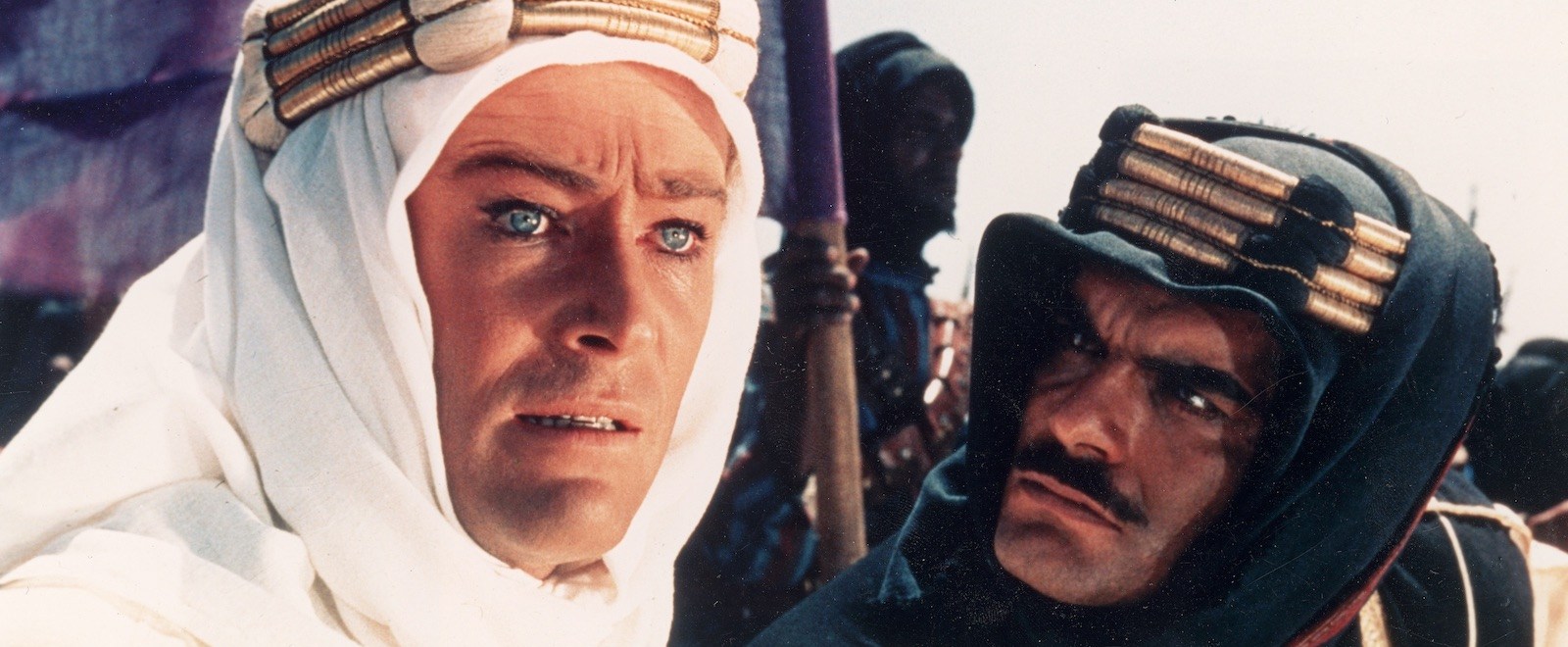
I’ve written about my love of 4K Blu-rays before, and being cooped up inside for the last few months, I’ve had plenty of time to watch more and more and more. Look, like you, I also love streaming. (I’ve watched a lot of HBO Max recently and I really didn’t see that coming. Their library of films is probably the most impressive of any streaming service right now.) But even 4K streaming can’t match the beauty of the 4K disc being pumped directly into your television with no internet bandwidth to worry about.
But a movie missing from 4K, up until now at least, as been Lawrence of Arabia, one of the most gorgeous looking films of all time. So when Sony sent me a review copy of their new set, Columbia Classics Volume One, yes, Lawrence Of Arabia was the first movie I popped in and it is breathtaking. Honestly, it looks like a movie that was made yesterday. I was floored. And just the right mixture of film grain to make it looks like you’re watching a theater screen. (There’s nothing worse than a transfer that takes out all the grain, making it look like it was shot with a digital camera circa 2005. If you want to see an example of this, watch the Terminator 2 4K disc.
The set is unusual because the movies included really have no relation to one another, not even the general time period they were made. The est includes the aforementioned Lawrence of Arabia, Dr. Strangelove, A League of Their Own, Mr. Smith Goes to Washington, Jerry Maguire, and Gandhi.
I had so many questions about this set and why these movies, and if Sony is targeting more the enthusiast crowd over mass market, that I reached out over email and asked Jeremy Glassman, the director of brand marketing for catalog titles, and asked what all went into how this set was developed.
Why were these specific films picked?
Columbia Pictures has a rich and varied library of films from its nearly 100 years of history. We wanted to celebrate a selection of those films that have become foundational within pop culture and reflected both the eras in which they were made as well as being relevant to today. It was also an opportunity to debut titles that would really shine on 4K Ultra HD and that fans have wanted to own. In the cases of Mr. Smith, Lawrence, Dr. Strangelove and Gandhi, those are some of our studio’s “crown jewel” titles and this was the perfect instance to bring them together in the highest quality. Particularly Lawrence, since it’s definitely been one of our most-requested titles for 4K UHD over the years. Then for the remaining two “modern classics,” we wanted to hear from fans about which titles to include. We created an online poll last summer where fans could select from some of our most memorable films from the last 30 years, and after over 30,000 responses, League and Jerry were the top two choices. While the titles do span a variety of genres and visual styles, there are common threads across the films of the characters battling against oppressive systems, being a force for change, and fighting for a better world (sometimes unsuccessfully). Of course, they’re also all enormously entertaining and quotable, too, so that’s definitely important!
What are the biggest challenges of converting older movies to 4K? Did 4K scans already exist from prior Blu-ray releases?
The asset management team here at Sony Pictures, led by Grover Crisp, has been working within the 4K space for nearly two decades now and has been an industry leader in terms of quality and abilities. So as long as the right elements are available, the work can be done. While the process of converting film into a 4K presentation for the home is different and often more complex than working with a movie that was shot digitally, the result of that work can be stunning, as demonstrated by the films within this set. There are specific details about the picture and audio restorations for each of the set’s six films within the included book, but most notable and challenging was probably the work done for Lawrence of Arabia. Following the original physical restoration of the film in the late 1980s, Grover and his team scanned the film’s 65mm negative at 8K resolution to capture the full scope of detail, and did an immense amount of cleanup and repair work from there at 4K resolution, resulting in the stunning presentation we have today. In addition to Lawrence, while we did already have 4K masters used on Blu-ray for Mr. Smith, Dr. Strangelove, and Jerry Maguire prior to creating this set, Gandhi and League have been newly upgraded, and all six films have received additional attention in terms of audio upgrades and restorations, additional picture cleanup and adjustments, and expansion into the High Dynamic Range (HDR) color space.
A few people have asked me on Twitter if I knew if any of these would get an individual release? (Obviously, people are very interested in the new Lawrence of Arabia.)
While it’s possible that one or more of the included titles might get an individual release in the future, there are no plans this year for individual releases.
This is a Volume One, should we expect a Volume Two and do you know yet what might be included?
We’re very enthusiastic about the overall response to our Volume One set, and it’s certainly been encouraging for any future opportunities. There are definitely a lot of amazing titles from the Columbia library that would work well for a theoretical Volume Two set and we still have a lot of feedback to sort through from last year’s 4K fan poll.
Does this show Sony is committed to 4K films? We all realize streaming is very popular now, but there are still a lot of us (like me) who still love owning discs. Especially great 4K transfers that can’t be duplicated over even 4k streaming. But does this kind of package show that the strategy for older titles might be more toward collectors?
From a library perspective, it’s important to make our films available as broadly as possible and offer choice in how fans and families choose to watch. To that end, we are dedicated to continuing to bring our films to 4K UHD disc, as well as to digital platforms. We definitely see the passion of the physical consumer, especially for 4K UHD, and share in the excitement of bringing our movies to the format in the highest possible quality all around. While the Columbia Classics set is certainly one way to bring together our films for collectors, it’s not our sole strategy going forward. We recently released standalone 4K Ultra HD editions of the adventure favorite The Mask of Zorro and the acclaimed masterpiece Boyz N The Hood, and have many other 4K UHD releases of both recent and classic titles planned beyond any other possible higher-end packages.
And related to the prior question, I guess I’m just wondering about the strategy of what catalog films get the 4k release treatment. The Bridge on the River Kwai had a prior release (and it’s a beautiful transfer), but going forward would movies like that be part of this kind of package?
There are a combination of factors that go into deciding what catalog titles get released in 4K, and it’s often a blend of the creative, the cultural, and the commercial. We usually consider key anniversaries as a driving factor, as well as theatrical drafting opportunities for related library films, important global or focused events. And sometimes just fun or meaningful movies from the catalog that sometimes may offer a cool filmmaker or special feature opportunity. The availability of 4K masters for the films is also a consideration, and we’re always enthusiastic to further expand our studio 4K asset library. The way we bring a title to market is also driven by a variety of considerations, so it wouldn’t necessarily be the case that titles like The Bridge on the River Kwai or similar would only be available within a larger set, it entirely depends on the specifics of a given title.
You can contact Mike Ryan directly on Twitter.

A worldwide debate has been raging over the past few years over statues of historical figures.
People in the United States have been tearing down statues of Confederates and known racists. In Europe, people are tearing down statues of historical leaders associated with colonialism and the slave trade.
“I believe it’s a paradigm shift that’s happening right now,” activist Mike Forcia, who helped topple over a statue of Christopher Columbus in Minnesota, told The Washington Post.
White people are “losing their ability to say this is history and this is how we write it, and this is how we teach it,” he added. “We need a true history of this country in order to heal and to fix that shaky foundation, that sick foundation, that the country is built on.”
Surprisingly, the movement to eradicate monuments built to racists and murderers has its detractors. Most claim that removing the statues somehow erases history. As if we will suddenly forget the Civil War happened if we don’t have a big ass statue of Robert E. Lee in front of the courthouse.
Upworthy’s Annie Reneau put it all in perfect perspective.
The entire reason for their removal is that people are finally becoming aware of history that had been erased, through whitewashed history books and glaring omissions in the heroic stories we tell. As a result, people are making history by taking down monuments that symbolize historic erasure.
Over 20,000 people have signed a petition to remove all Confederate statues in Tennessee and replace them with statues of a national treasure who didn’t fight to subjugate an entire race of people: Dolly Parton.
The petition makes a great point, why don’t we honor people that we can all agree on?
There are plenty of statues of people and things across the world that no one thinks should be vandalized or set ablaze and thrown in the ocean. Here are 15 of the best.
The Bronze Fonz — Milwaukee, Wisconsin
Arthur Fonzarelli was the coolest character to ever grace the small screen. He was also a fierce protector of his friends and always stood up for what’s right. He also once jumped over a shark on water skis.
Freddie Mercury — Montreaux, Switzerland
The lead singer of Queen had one of the most beautiful singing voices in the history of rock and wrote some of the most memorable songs of the last 50 years including, “We are the Champions,” “Bohemian Rhapsody,” and “Somebody to Love.”
Oprah Winfrey — New York City
Orpah is one of the most important media personalities over the past century. Her unique blend of strength and compassion has inspired people for over five decades.
 via New Age
via New Age
Bruce Lee — Mostar, Bosnia
Lee was a martial artist, actor, and philosopher who is responsible for bringing martial arts films to western audiences. He also worked tirelessly for equality and to change the perception of Asians in American culture.
Josh Gibson — Washington, D.C.
Gibson’s statue sits outside of the Washington Nationals’ ballpark, but sadly, he never played in the major leagues. During his playing career, Black people were not allowed in Major League Baseball, but his incredible play in the Negro leagues earned him the nickname the “Black Babe Ruth.” (Or perhaps Babe Ruth should have been known as the “White Josh Gibson”?)
Large Salmon — Portland, Oregon
Nobody passes this massive statue of a salmon stuck in a brick building and thinks, “Gee, I gotta pull this sucker down.” Nope, that’s because salmon are among of the most dignified creatures in the ocean.

Jim Henson and Kermit the Frog — University Of Maryland
These two brought a lot of love and laughs into the world.
Samantha from “Bewitched” — Salem, Massachusetts
The relationship between Samantha, a witch, and Darrin, a mere mortal man, proved that no matter what our differences, we can make a relationship work … even if it does take a little witchcraft.
The Knotted Gun — New York City
“The Knotted Gun” was originally created as a memorial to John Lennon, a man struck down by senseless gun violence.
Columbo — Budapest, Hungary
Did Columbo own slaves? No. Did he colonize a country and pilfer its national resources? No. Did he spread small pox to indigenous people. No. This statues stays up.
The Headington Shark — Oxford, England
While this bit of whimsy seems like a joke, it actually has a deeper meaning. The shark represents the impotence that people feel when they have no control over disastrous world affairs. I think we can all agree this sentiment is universal and should stay.
David Bowie — Buckinghamshire, England
David Bowie became an icon for his constant evolution from Ziggy Stardust to Lazarus. He never settled on a persona or musical style for too long, teaching us all how to embrace change.
Michael Jordan — Chicago, Illinois
When you’re known as “the guy who did his job better than anyone else has done their job” you’re deserving of a statue that stays up.
Mary Tyler Moore — Minneapolis, Minnesota
When your name is the answer to the age-old question: “Who can turn the world on with her smile?” your statue status is secure.
While anticipation is high for Robert Pattinson‘s performance in both Tenet and The Batman, the actor quietly slipped a turn in an upcoming period piece under the radar.
In the new trailer for Waiting for the Barbarians, Pattinson plays a young officer who serves Johnny Depp‘s villainous Colonel Joll as he metes out torture and abuse to local barbarians while Mark Rylance’s unnamed magistrate struggles to protect them. The film is based on the 1980 award-winning novel of the same name by South African author J. M. Coetzee, which has often been cited for its brutal criticism of imperialism. Judging by the trailer, the film will not be kind to colonialism by way of military force.
Here’s the official synopsis:
The Magistrate of an isolated frontier settlement on the border of an unnamed empire looks forward to an easy retirement until the arrival of Colonel Joll, whose task it is to report on the activities of the ‘barbarians’ and on the security situation on the border. Joll conducts a series of ruthless interrogations, which leads the Magistrate to question his loyalty to the empire.
The pairing of Pattinson and Depp will no doubt pique the interest of comic book fans who have been campaigning for Depp to play the Joker in Matt Reeves’ The Batman trilogy. Noted nerd master Kevin Smith has been especially vocal about fan-casting the Pirates of the Caribbean actor. “Of all the actors out there that could possibly take a role of the dice on the Joker, Johnny Depp (is) actually kinda f*cking perfect,” Smith said on his podcast back in March. “You gotta admit he’d be fun man, like of all the parts he’s played, he’s kind of perfect for a take on The Joker.”
Waiting for the Barbarians hits VOD on August 7.
(Via Samuel Goldwyn Films)
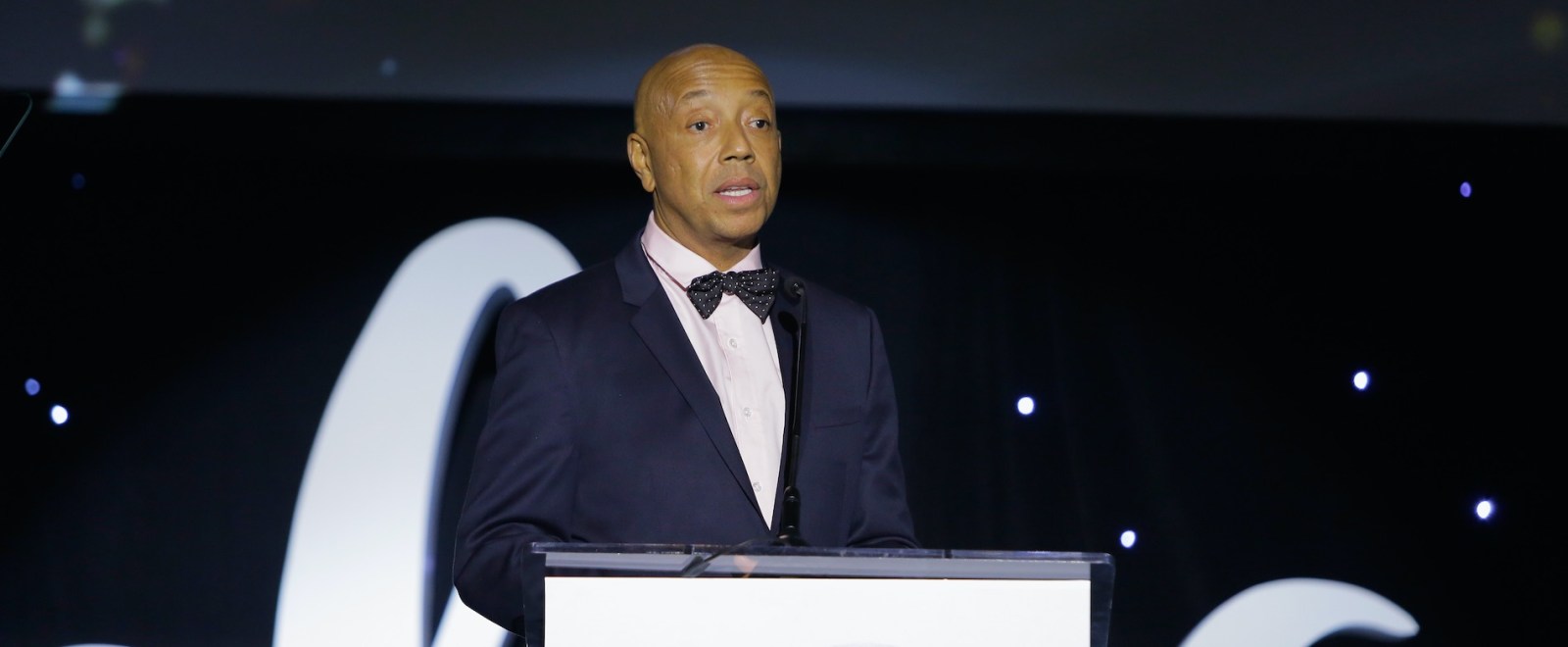
Revolt TV recently made the decision to publish an episode of its Drink Champs podcast that featured Russell Simmons in a discussion about Black Lives Matter. The episode, which was hosted on Tidal, came after the recently released HBO Max documentary On The Record, which details allegations of sexual assault made against the record executive. Ultimately, people didn’t care for the decision to include Simmons in the Drink Champs episode, and they let Revolt and Tidal hear it online. Now, following the backlash, Tidal has removed the episode from their platform.
One of the most vocal detractors of the episode was journalist Sil Lai Abrams, one of the women who made allegations against Simmons in On The Record. She wrote on Twitter, “What in the entire hell are Jay Z and @TIDAL doing by giving Russell Simmons a platform to discuss #BlackLivesMatter? Why do people continue to give him a pass? @marclamonthill did you ask him about the multiple rape allegations against him??? […] There is *absolutely* an underground movement by powerful Black men in music to help Russell avoid accountability and whitewash his legacy.”
What in the entire hell are Jay Z and @TIDAL doing by giving Russell Simmons a platform to discuss #BlackLivesMatter? Why do people continue to give him a pass? @marclamonthill did you ask him about the multiple rape allegations against him??? https://t.co/oDI7fQtJHW
— Sil Lai “Scrappy” Abrams (@Sil_Lai) June 23, 2020
There is *absolutely* an underground movement by powerful Black men in music to help Russell avoid accountability and whitewash his legacy.
— Sil Lai “Scrappy” Abrams (@Sil_Lai) June 23, 2020
Marc Lamont Hill explained his involvement in the episode, tweeting, “A few weeks ago, I appeared on Drink Champs. I was asked to join a discussion with Bun B, Talib Kweli, and Mysonne. About 2.5 hours into the show, Russell Simmons appeared. I had NO IDEA he was scheduled. I would NEVER have appeared if I had known. During Russell’s 20ish minutes on the show, I was texting the producers telling them that I was not comfortable with his press and asking to wrap. After the show, I expressed my frustration with what happened. I also asked them not to air Russell’s portions.”
During Russell’s 20ish minutes on the show, I was texting the producers telling them that I was not comfortable with his press and asking to wrap. After the show, I expressed my frustration with what happened. I also asked them not to air Russell’s portions.
— Marc Lamont Hill (@marclamonthill) June 23, 2020














